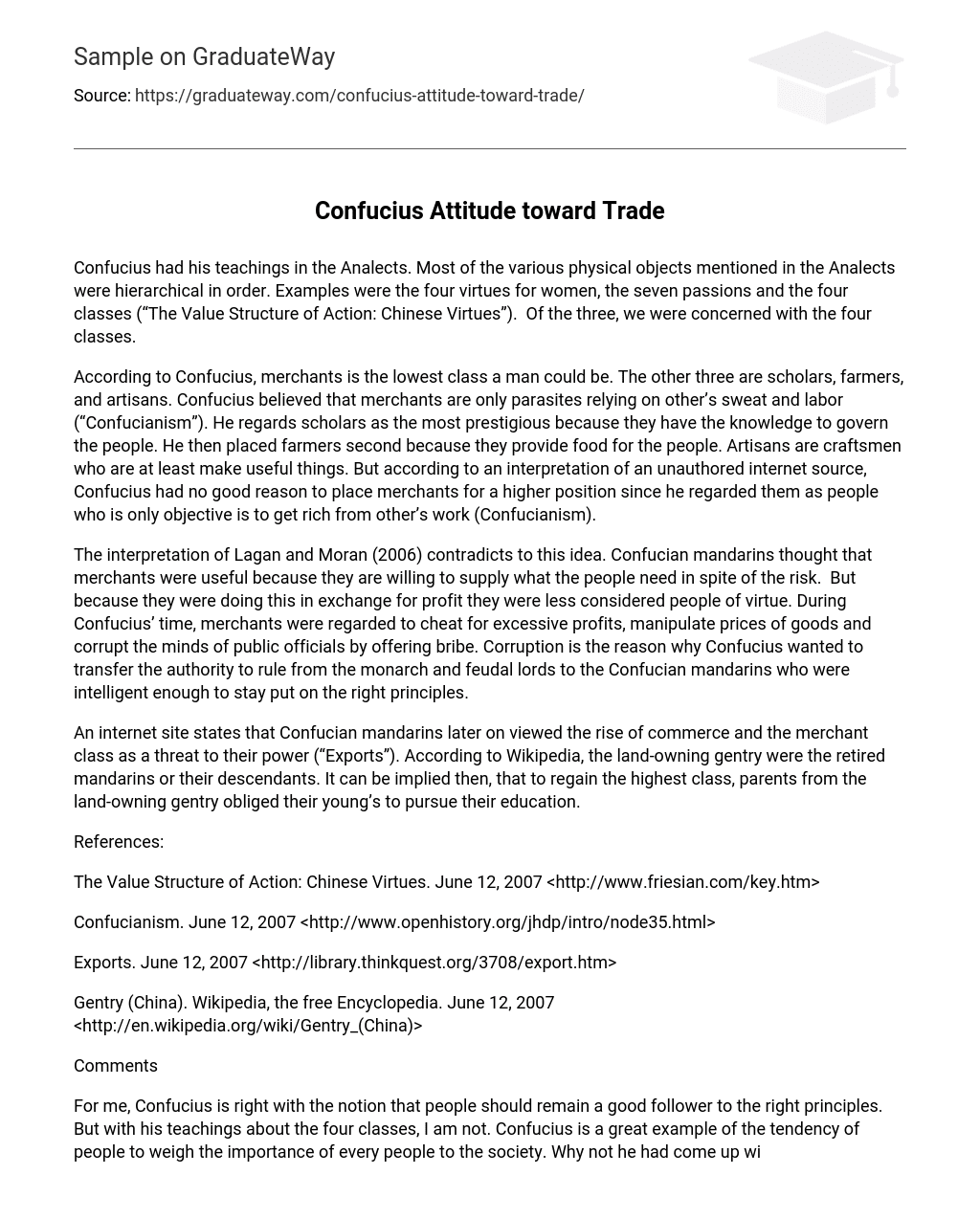Confucius had his teachings in the Analects. Most of the various physical objects mentioned in the Analects were hierarchical in order. Examples were the four virtues for women, the seven passions and the four classes (“The Value Structure of Action: Chinese Virtues”). Of the three, we were concerned with the four classes.
According to Confucius, merchants is the lowest class a man could be. The other three are scholars, farmers, and artisans. Confucius believed that merchants are only parasites relying on other’s sweat and labor (“Confucianism”). He regards scholars as the most prestigious because they have the knowledge to govern the people. He then placed farmers second because they provide food for the people. Artisans are craftsmen who are at least make useful things. But according to an interpretation of an unauthored internet source, Confucius had no good reason to place merchants for a higher position since he regarded them as people who is only objective is to get rich from other’s work (Confucianism).
The interpretation of Lagan and Moran (2006) contradicts to this idea. Confucian mandarins thought that merchants were useful because they are willing to supply what the people need in spite of the risk. But because they were doing this in exchange for profit they were less considered people of virtue. During Confucius’ time, merchants were regarded to cheat for excessive profits, manipulate prices of goods and corrupt the minds of public officials by offering bribe. Corruption is the reason why Confucius wanted to transfer the authority to rule from the monarch and feudal lords to the Confucian mandarins who were intelligent enough to stay put on the right principles.
An internet site states that Confucian mandarins later on viewed the rise of commerce and the merchant class as a threat to their power (“Exports”). According to Wikipedia, the land-owning gentry were the retired mandarins or their descendants. It can be implied then, that to regain the highest class, parents from the land-owning gentry obliged their young’s to pursue their education.
Comments
For me, Confucius is right with the notion that people should remain a good follower to the right principles. But with his teachings about the four classes, I am not. Confucius is a great example of the tendency of people to weigh the importance of every people to the society. Why not he had come up with an idea of recognizing every people’s importance. Every people had been given by their destiny of how their life would be. It is now up to him if he will give importance to what he has and then use his abilities to have a good role to the society.
References
- The Value Structure of Action: Chinese Virtues. June 12, 2007 <http://www.friesian.com/key.htm>
- Confucianism. June 12, 2007 <http://www.openhistory.org/jhdp/intro/node35.html>
- Exports. June 12, 2007 <http://library.thinkquest.org/3708/export.htm>
- Gentry (China). Wikipedia, the free Encyclopedia. June 12, 2007 <http://en.wikipedia.org/wiki/Gentry_(China)>





